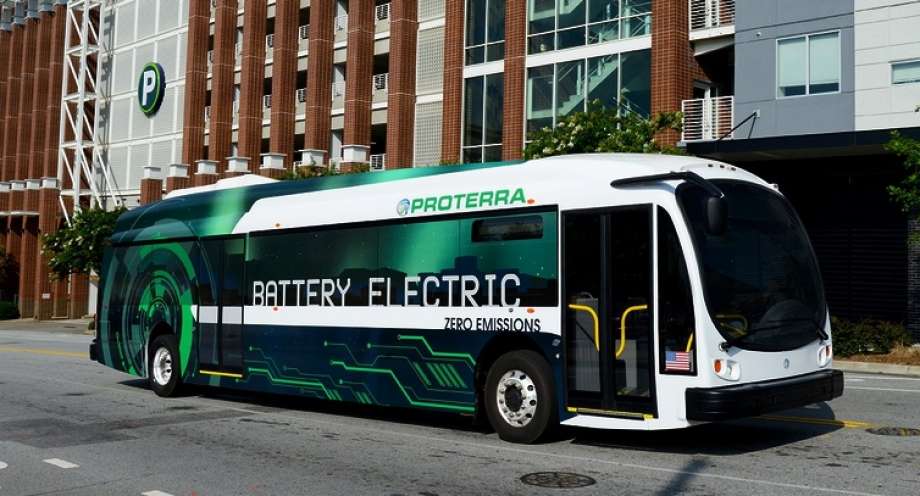The California Air Resources Board (CARB) has approved a statewide regulation that will force all public transit agencies to gradually transition to fully-electric bus fleets by 2040.
The Innovative Clean Transit regulation has recently been approved by the CARB in an attempt to reduce emissions from the transportation sector, which reportedly accounts for over 40% of carbon dioxide emissions as well as 80-90% of the pollutants directly responsible for smog production. By implementing the new regulation, the CARB expects to reduce greenhouse gas emissions by 19 million metric tons from 2020 to 2050.
CARB Chair Mary D. Nichols stated in a recent press release:
“A zero-emission public bus fleet means cleaner air for all of us. It dramatically reduces tailpipe pollution from buses in low-income communities and provides multiple benefits especially for transit-dependent riders. Putting more zero-emission buses on our roads will also reduce energy consumption and greenhouse gases, and provides cost savings for transit agencies in the long run.”
Approximately 200 public transit agencies operate in the state of California, with eight out of the 10 largest agencies already operation zero-emission fleets consisting of fully-electric buses and hydrogen fuel cell vehicles. With the new regulation, the CARB expect to increase the number of zero-emission buses in operation from 153 to 1,000 by 2020.
Each public transit agency will be required to submit a rollout plan demonstrating how they intend to purchase zero-emission buses, build out necessary infrastructure, and train the required workforce. Rollout plans for larger transit agencies are due in 2020, while rollout plans for the smaller agencies will be due in 2023. By 2029, 100% of annual new bus purchases are expected to be zero-emission.
In addition to transitioning towards fully-electric bus fleets, the CARB will conduct a public hearing on February 21st to consider approving a proposed Zero-Emission Airport Shuttle regulation according to Green Car Congress. If approved, the regulation would require fixed route airport shuttles to transition to 100% zero-emission vehicles by 2035.
While the decision to forcibly promote public policy initiatives through government regulations may leave a sour taste in the mouths of some, the CARB has since claimed that numerous benefits will arise as a result of the project. The CARB estimates that transit agencies will save approximately $1.5 billion in maintenance, fuel, and other costs by 2050 after the infrastructure buildout, and foresee an influx of new workforce training and employment opportunities throughout the state.
Source: Electric Vehicle Research
